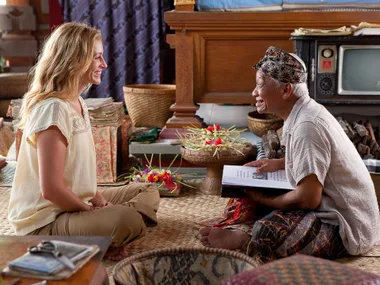Renee Bruns, 39, shares her story with Take 5:
Zipping up my backpack, I felt a wave of fear.
Maybe tomorrow’s flight will get cancelled and I won’t have to go after all, I secretly hoped.
It was May 2022, and I’d quit my job in insurance to embark on a year-long journey around the world.
I loved to travel and had been fortunate enough over the years to visit 67 countries with friends and family.
This time though, I’d be travelling alone, which was pretty daunting as a woman with a disability.
Although I had full muscular control of my arms and legs, as a child, I found walking increasingly painful.
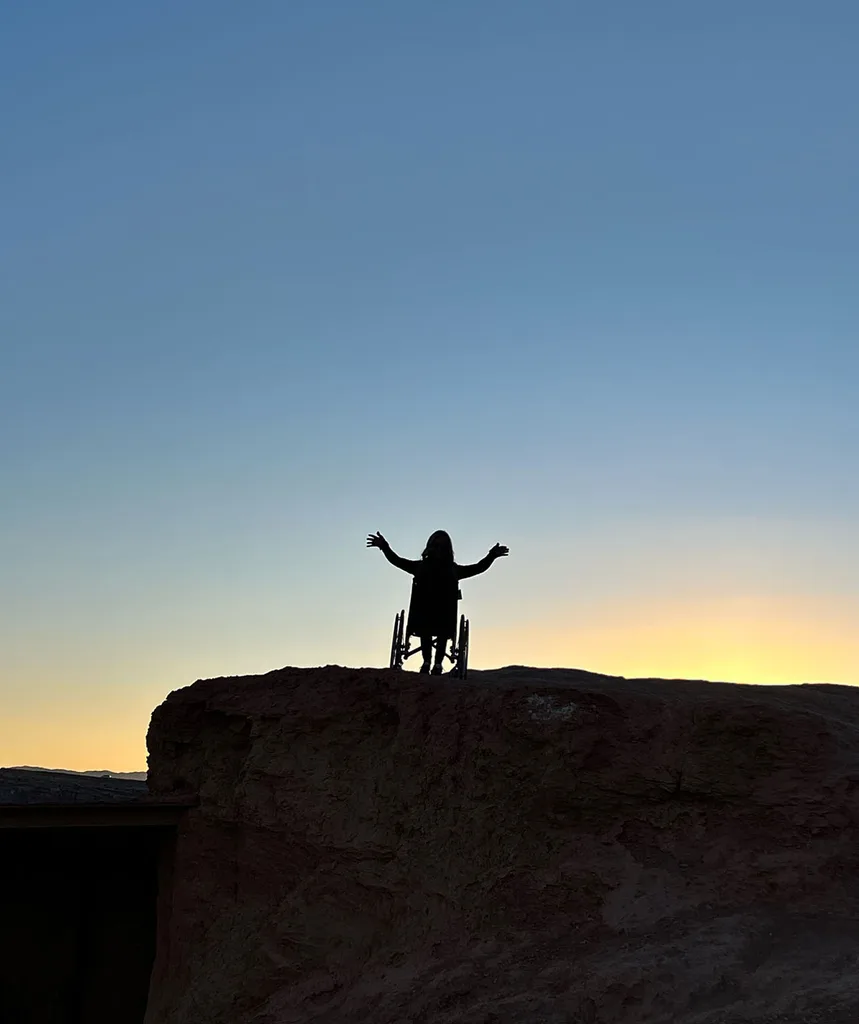
I’ve been in a wheelchair since I was a child. (Image: supplied)
By age seven, even the walk from the kitchen to the bathroom was agonising.
Doctors couldn’t find a diagnosis, but I quickly learnt to navigate life in a wheelchair.
In developed countries, accessibility isn’t as much of an issue, but my first destination on my solo trip was Bali.
What if I can’t find an accessible restaurant or bathroom? I fretted.
Although I’d ensured my hotel wouldn’t be a problem, I couldn’t eliminate all risks.
“This has always been your dream,” my partner, Tony, 39, encouraged me, sensing my nerves, “and I’m only a phone call away.”
I’d been with Tony for 10 years and we wanted to travel together, but he’d just landed a dream job, also in insurance, which he didn’t want to give up.
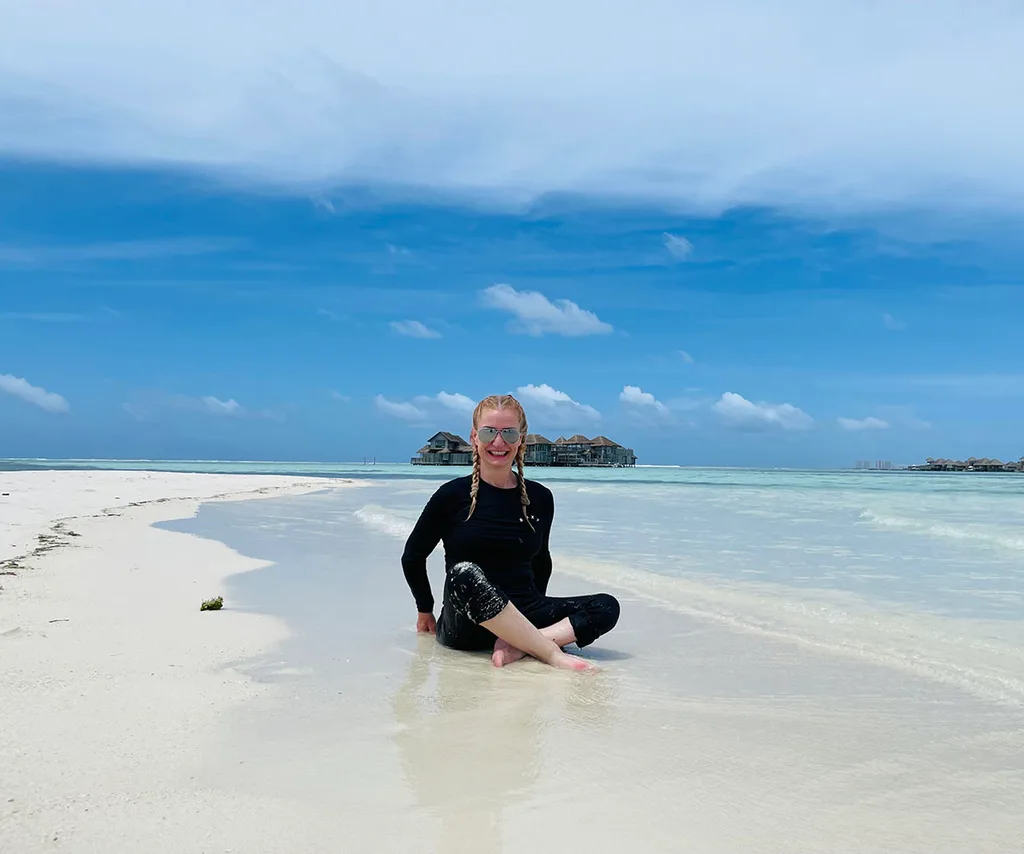
Travelling solo had been my dream for years. (Image: supplied)
For 20 years I’d been saving for the ultimate world trip and with borders re-opening after COVID, now was the perfect time.
The next day, Tony drove me to the airport.
As he wheeled me inside the terminal, the sense of panic was overwhelming.
All I had was my backpack of belongings, my chair, and a ticket to Bali.
“If it doesn’t work out, you can always come home,” Tony reassured me.
But I wasn’t going to give up without a fight.
While planning the journey, I’d contacted Guinness to see if there were any records associated with solo disability travel.
If you visit over 40 countries on your own in less than one year it will be a Guinness World Record, they’d responded.
I logged it in the back of my mind as a potential goal.

I needed to visit over 40 countries in one year to break the record. (Image: supplied)
After kissing Tony goodbye, I wheeled through airport security and over to the boarding gate.
I can do this, I told myself.
Thankfully, I was given priority boarding.
At the plane’s entrance, a narrow aisle wheelchair was brought forward to take me to my seat.
It had straps designed to fasten the user from the shoulders down.
I couldn’t bear the thought of being that constricted.
“I’ll just crawl,” I told the staff.
Although surprised, they understood, and a crew member carried my bag while I shuffled on hands and knees to my seat.
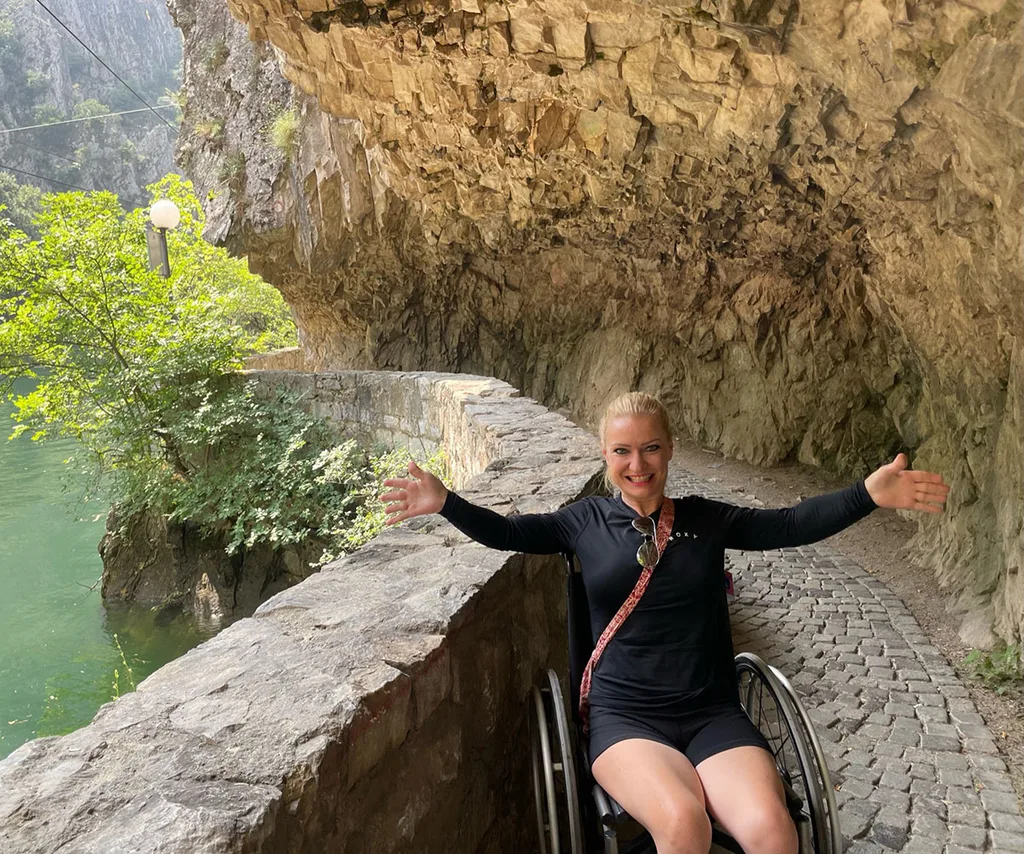
I was determined to do it on my own. (Image: supplied)
No turning back now, I thought as the plane took off.
It felt like I was leaving my nerves behind on the tarmac.
I got in late to my hotel in Bali and fell straight asleep from exhaustion.
The next morning, I arranged for a driver to take me to see the island’s sights.
He drove me up a mountain to an ancient Hindu temple.
“I want to go to the very top,” I told the driver.
“The road doesn’t go that far,” he apologised.
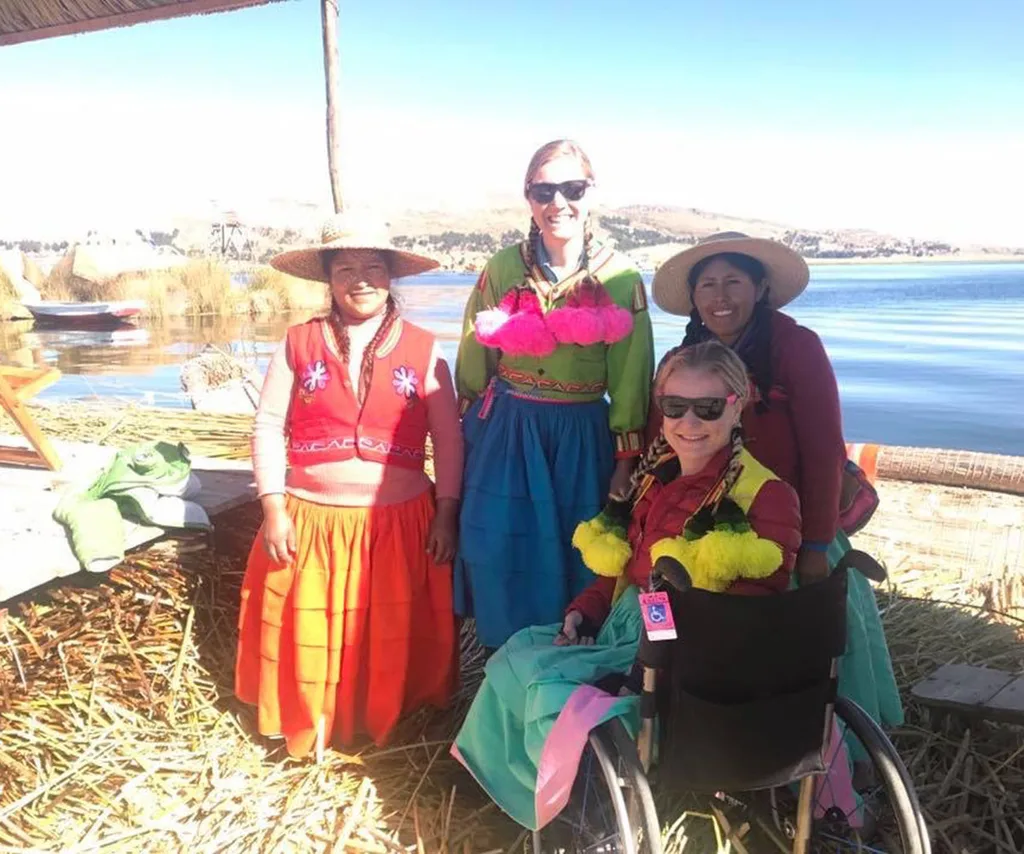
Everywhere I went, people were so helpful. (Image: supplied)
It was disappointing.
I knew the view from the peak would be incredible.
Kindly, the driver spoke with two other local men nearby and the three of them carried me to the summit!
Rather than making me feel like a burden, they smiled the whole way.
As predicted, the view from the top was sensational.
I’m on top of the world, I thought happily.
From Bali, I set about arranging my next destination, the Philippines.
After that, I made the trip up as I went, staying in a country until I got bored and moved on to the next.
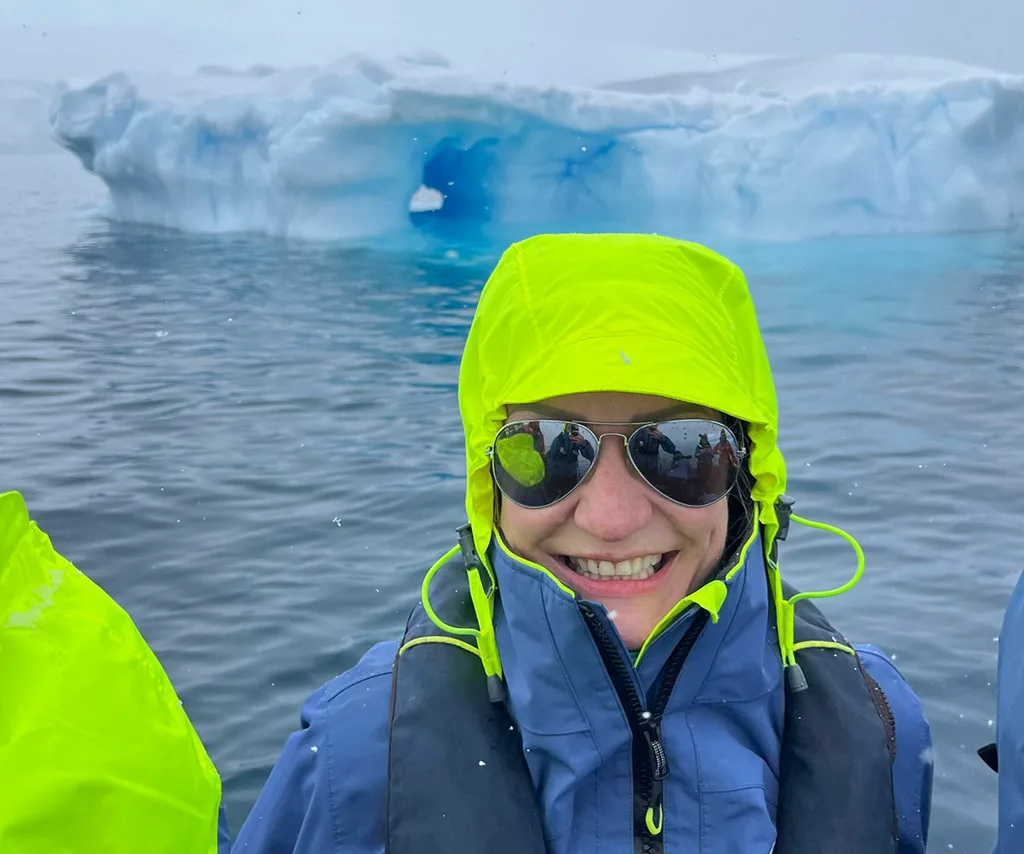
I made up the trip as I went. (Image: supplied)
Wherever I went, Africa, Europe, Asia, I was overcome by the kindness of strangers.
One of my favourite places was Uzbekistan due to the warmth of the people.
The hostel where I stayed was run by an older woman named Irena who cared for me like I was her daughter.
She made sure I had access to the shower and anything else I needed.
Although she didn’t speak English, we connected through gestures, and it was clear she saw me for more than my disability.
Six months into the trip, I’d visited enough countries to make the world record a possibility.
I can do this, I promised myself.
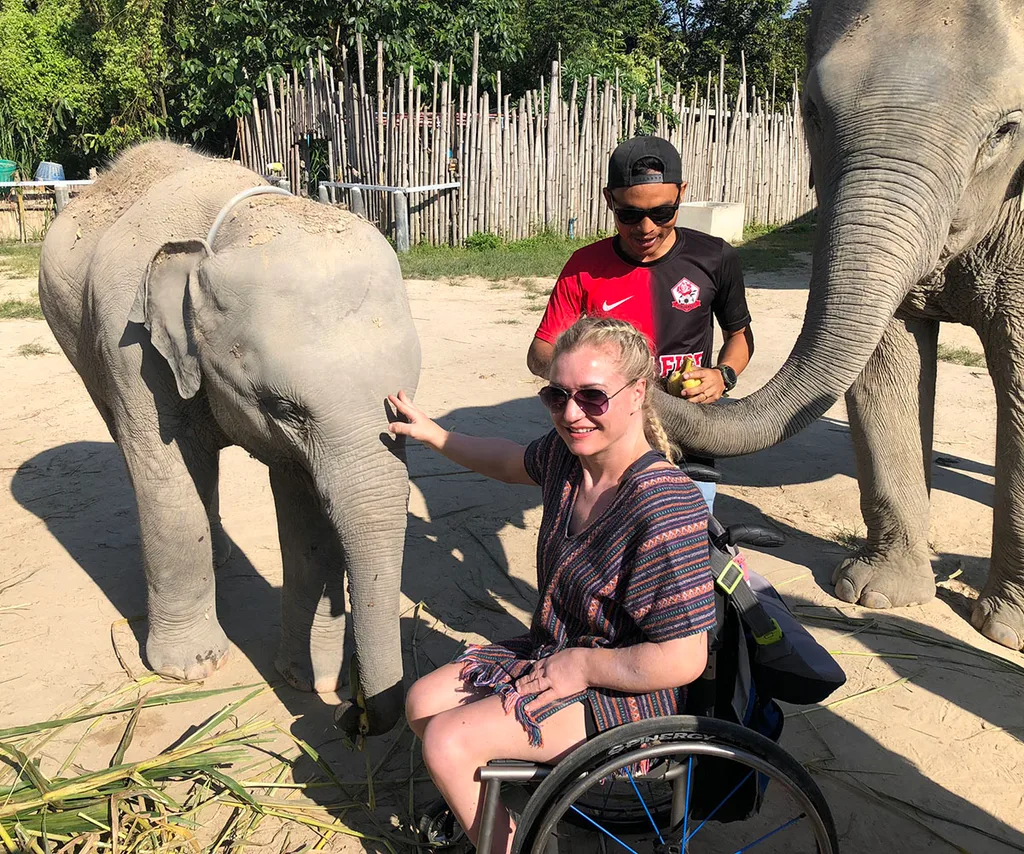
Six months into the trip, the record became a real possibility. (Image: supplied)
Hopping through the small islands of the Caribbean quickly increased the tally.
By eight months, I’d visited 40 countries, but kept going.
I need extras in case Guinness don’t recognise some, I figured.
I headed to the South Pacific, visiting Vanuatu, Kiribati, Tonga, and Samoa.
I’ve well and truly achieved the record, I thought, but I can’t stop!
My journey continued to Fiji, New Zealand then up to Honduras and Nicaragua.
Finally, by February 2023, I’d visited a total of 66 countries on my own.
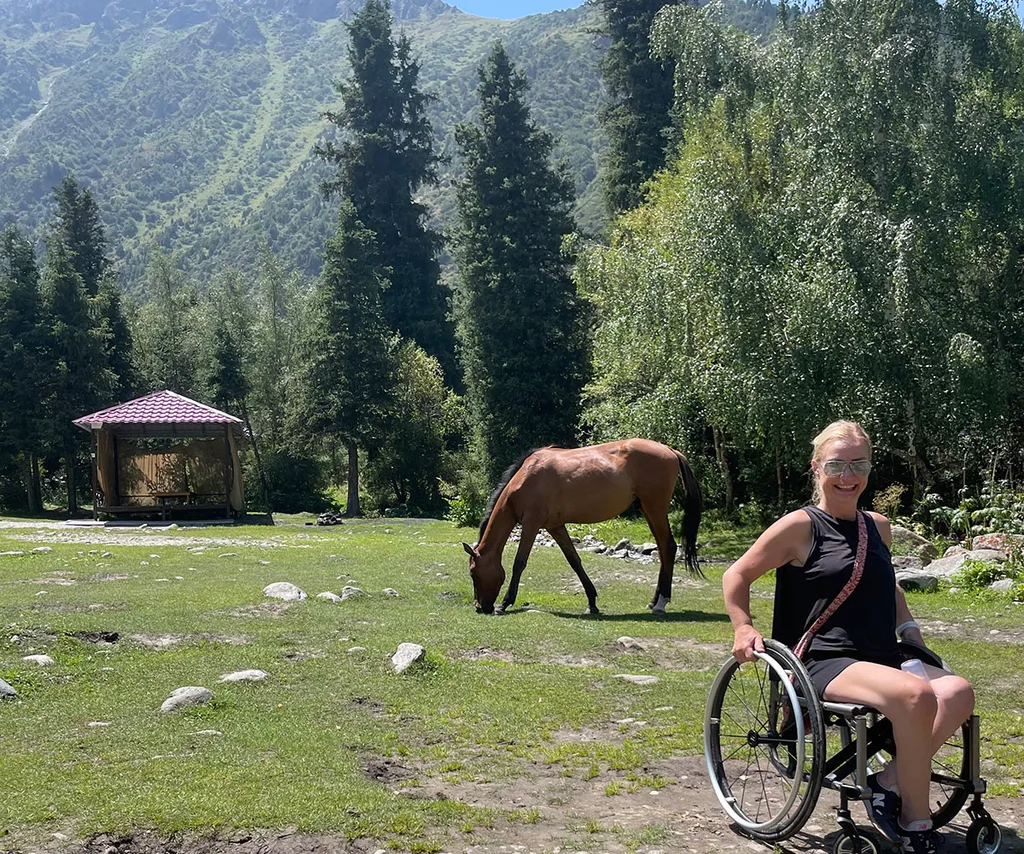
In eight months I’d broken the record. (Image: supplied)
I posted the evidence to Guinness and the following week received a very plain email.
Your record has been approved, it read. You’re the new Guinness World Record holder for most countries visited by a person in a wheelchair in a year.
The feeling of achievement was amazing but returning home, I was conflicted.
“I want to be with you,” I told Tony, “but I also want to keep travelling.”
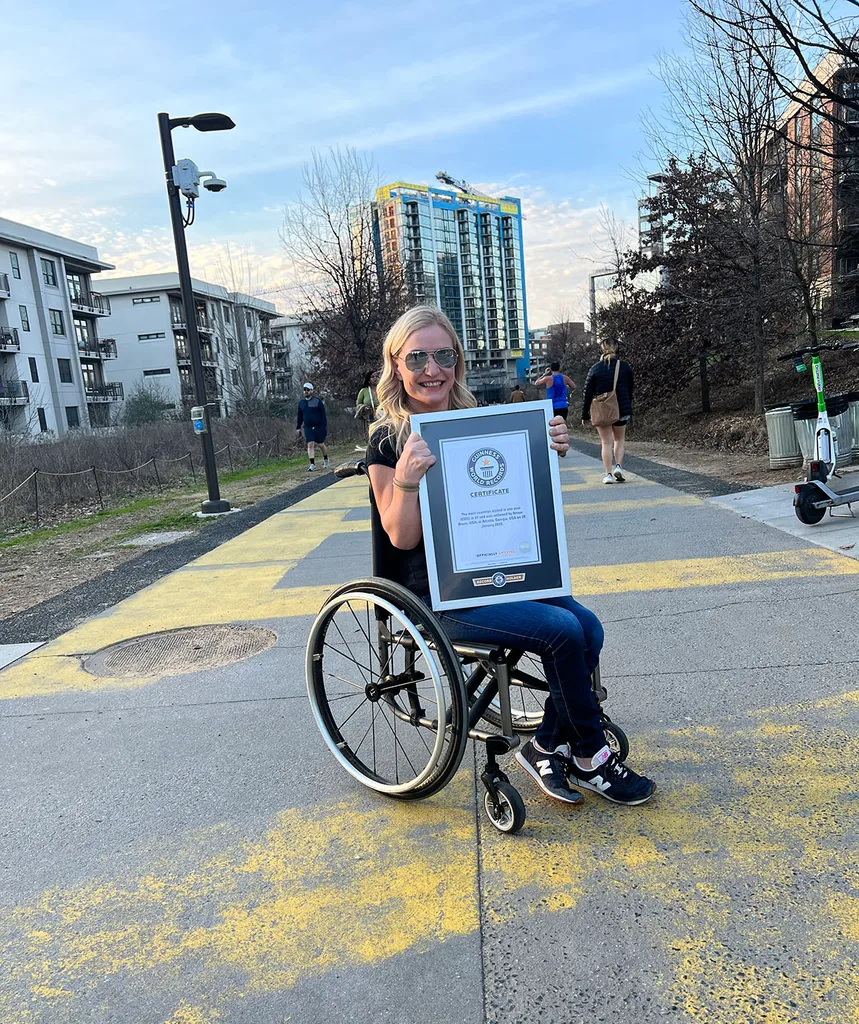
The feeling of achievement was amazing! (Image: supplied)
“I’ll come with you,” he replied.
Fortunately, his work allows him to work remotely and in May last year we both relocated to Argentina.
We’re already planning our next trip, but in the meantime, I’m writing a book about my travels.
I want to use my record as encouragement that a disability doesn’t have to stop you from getting out there and seeing the world.
Follow Renee on Instagram @wheelstravels


